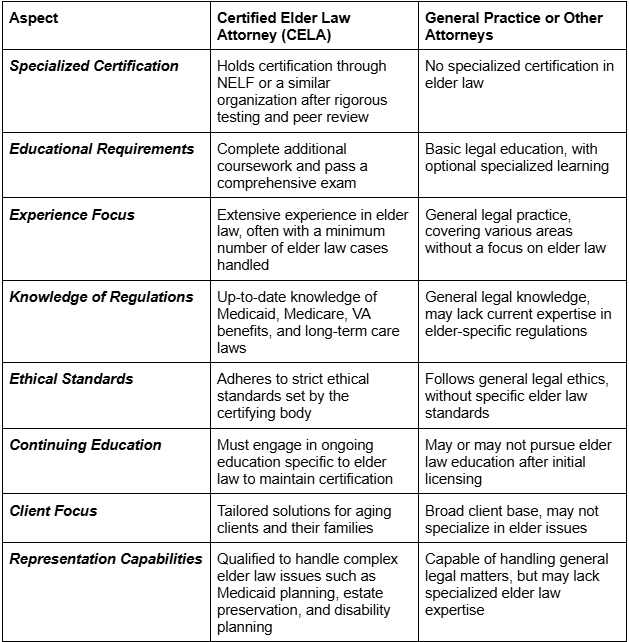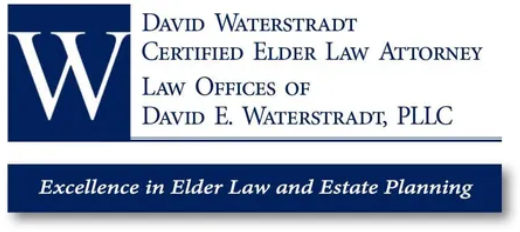
How is a Certified Elder Law Attorney (CELA) Different from Other Attorneys?
Understanding the Role of a Certified Elder Law Attorney (CELA)
As the aging population grows, so does the need for specialized legal services to address complex issues faced by seniors. One of the best ways to ensure clients receive expert guidance is to have them seek counsel from a Certified Elder Law Attorney (CELA). But how does a CELA differ from general practitioners or other attorneys? Understanding these distinctions can enhance your experience when exploring your options.
What is a Certified Elder Law Attorney?
A Certified Elder Law Attorney is an attorney who has undergone specialized training and certification in elder law by a reputable organization, such as the National Elder Law Foundation (NELF). This certification signifies a high level of expertise in areas affecting seniors, including estate planning, Medicaid planning, veterans benefits, long-term care arrangements, and more.
Key Differences Between a CELA and Other Attorneys

Why Choose a CELA?
- Expertise in Complex Regulations: Elder law encompasses a wide range of federal and state laws that are constantly evolving. A CELA stays current with these updates, ensuring clients receive accurate legal advice.
- Comprehensive Service: Certified attorneys are equipped to handle a wide array of issues, including Medicaid and Medicare planning, VA benefits, estate and trust planning, long-term care directives, guardianships, and conservatorships.
- Better Outcomes for Clients: Their deep understanding of nuanced laws and procedures ensures clients’ assets are protected, legal rights are preserved, and benefits are maximized.
- Credibility and Trust: Certification signals a high level of professional competence, reassuring clients and referral sources about the quality of legal services.
Additional Considerations
Here are some situations where involving a CELA can be particularly beneficial:
- Complex Medicaid or Medicaid Fraud Issues: Understanding the intricacies of Medicaid eligibility, spend-down, asset protection strategies, or defending against Medicaid denials requires specialized knowledge that most general practitioners may not possess.
- VA Benefits Planning and Appeals: Assistance with veterans’ benefits, such as Aid and Attendance or service-connected disability claims, often involves detailed paperwork and legal procedures best handled by a CELA.
- Long-Term Care and Guardianship: Establishing guardianships, conservatorships, and navigating the long-term care Medicaid planning process can be legally complex and emotionally sensitive, warranting expert intervention.
- Asset Preservation and Estate Planning for Seniors with Special Needs: Structuring estates to preserve benefits for disabled or chronically ill clients requires advanced estate planning strategies that a CELA is trained to develop and implement.
- Challenging or Complex Legal Disputes: Litigation or disputes involving elder abuse, undue influence, or contested guardianships benefit from the experience of a seasoned elder law specialist.
Whether you’re dealing with straightforward matters, such as estate planning or veteran benefits consulting, a CELA ensures you receive the highest level of expertise and advocacy.
Do You Have Questions Regarding Elder Law in the Muskegon, MI Area?
If you have questions about elder law in Fremont, Norton Shores, Whitehall, or Coopersville, MI, contact us at the Law Office of David E. Waterstradt. With over 30 years of experience in veteran benefits and elder law, we can help you feel secure in your golden years.







